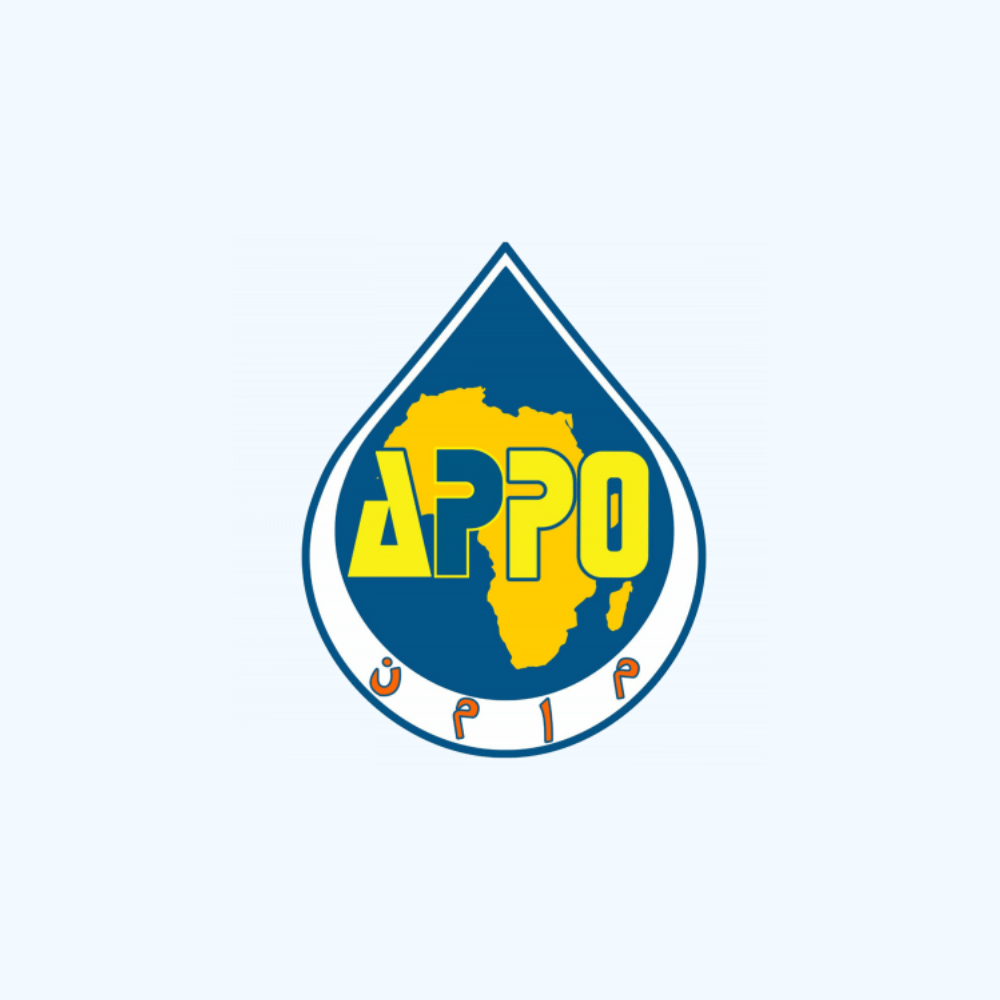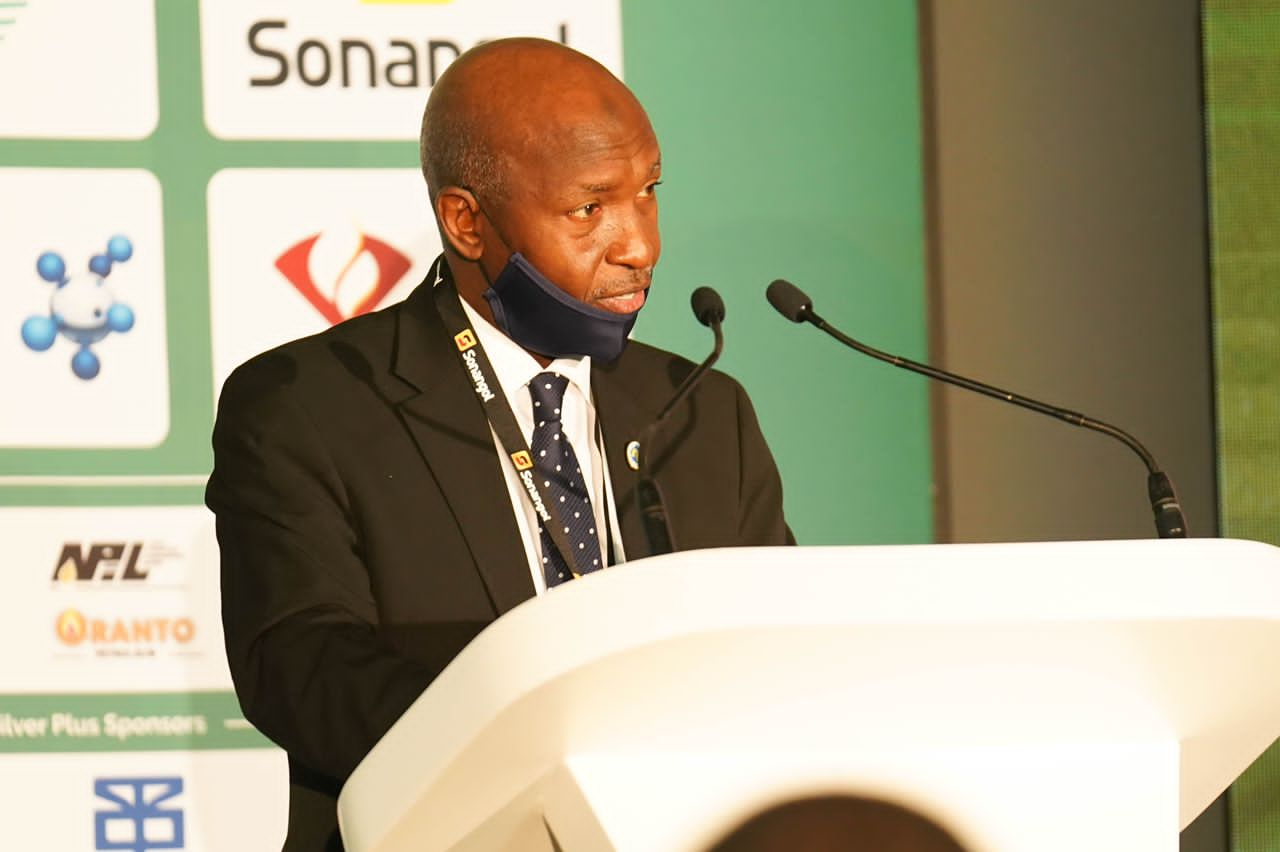ADDRESS OF HE MOHAMED ARKAB, PRESIDENT OF THE COUNCIL OF MINSTERS OF APPO DELIVERED TO THE 41ST SESSION OF THE APPO COUNCIL OF MINISTERS, HELD VIA VIDEO CONFERENCE ON TUESDAY 14TH DECEMBER 2021
Excellencies Ministers and Plenipotentiaries of APPO Member Countries, Excellencies guest Ministers, The Chairman and Members of the Executive Board of APPO, The Secretary General of APPO, other delegates, distinguished ladies and gentlemen.
I am pleased to welcome you all to the 41st Session of the APPO Council of Ministers which the emergence of the new variant of COVID-19, Omicron, has forced us to now hold virtually, against our plan to host all of you in our hospitable city of Algiers.
This measure is necessary in view of our sense of responsibility to ensure the health and good conditions of this important meeting for its success.
Excellencies,
since our last regular meeting in Niamey, the Council has had some new members, and I am most pleased to welcome
- His Excellency Bruno Jean-Richard ITOUA, Minister of Hydrocarbons of the Republic of Congo,
- His Excellency Budimbu Ntubuanga DIDIER, Minister of Hydrocarbons of the Democratic Republic of Congo,
- His Excellency Thomas CAMARA, Minister of Mines, Petrol and Energy of Cote d’Ivoire,
- His Excellency Mohamed Mahaemed M. OUN, Minister of Oil and Gas of the State of Libya, and
- His Excellency Mahammane Sani MAHAMADOU, Minister of Petrol, Energy and Renewable Energies of the Republic of Niger,
to their very first Meeting of the APPO Council of Ministers. I am confident that the deliberations of the Council will benefit from their vast experiences in the industry and in administration. We look forward to your contributions to our collective efforts to address the serious challenges that the Energy Transition poses to our national economies and the well-being of the peoples of our continent.
Please convey our deep appreciation to your predecessors Their Excellencies:
- Jean-Marc Thystere TCHICAYA,
- Professeur Aime Ngoy MUKENA,
- Abdulrahman CISSE,
- Mustafa Sanalla, and
- Foumakoye GADO
for their contributions to the growth and development of our Organization. We all wish them success in their future endeavors.
Excellencies,
I would also like to express my personal appreciation and that of the Council to Her Excellency Madame Aishatou Sophie GLADIMA, Minister of Petroleum and Energies of the Republic of Senegal, and His Excellency Dr. Mathew Opoku PREMPEH, Minister of Energy of the Republic of Ghana, represented at this meeting by His Excellency Mohammed Amin ADAM, Deputy Minister of Energy of Ghana for honoring our invitation to this meeting.
I would also like to recognize the presence of the Executive Director of the African Energy Commission of the African Union, AFREC, Ali Abdalla RASHID and the Executive Chairman of the Africa Energy Chamber, Mr. N. J. Ayuk, two continental partner energy institutions that have been collaborating with the APPO Secretariat since the reform.
Your presence at today’s meeting is testimony to the growing realization by the continent of the need for all of us in the industry to come together to chart the African path to the global energy transition.
It is in this sense that I invite you to join forces to lead the way for the African oil and gas industry in order to follow the development of this industry to ensure (i) the security of energy supplies (ii) significant socio-economic benefits on our countries and (iii) the financing and acceleration of the energy transition to achieve the objectives of 2050 and 2063.
Excellencies,
the year 2021 started off well with the oil market looking up after recovering from the unprecedented crash of April 2020, thanks to the effort and foresight of many oil-producing countries that have avoided an unprecedented global energy crisis.
The market witnessed steady rise in price, from an average of USD 54 per barrel in January to USD 84 per barrel in October. The emergence of the new strain of COVID19, the Omicron, poses another threat to global oil market stability. We all hope that necessary measures will be taken to limit the negative consequences of this threat.
For us in APPO, the danger goes beyond global oil market volatility to the very survival of the industry on our continent.
Since the Paris Climate Agreement and especially since COP26 in Glasgow, the pressure on us to abandon fossil fuels for renewable energies has been on the increase. Transition targets have been set that do not take into consideration the different levels of socio-economic developments of the various countries that are signatories to the climate treaty.
Today’s developed countries that had relied on fossil fuels to transform their economies and societies, are telling us that the same fuels that changed their economies and societies for the better are dangerous for the world and that we should abandon them. But we have not been given any viable alternative. This is more so that collectively Africa has over 125 billion barrels of proven crude oil reserves and over 500 trillion cubic feet of natural gas.
Today more than ever, the most industrialized and developed countries must give us their support and assistance to develop our economies and industries in a sustainable framework based on a win-win approach.
What we expected the developed world to be talking to us about is the provision of technologies that would make the exploitation, processing and use of our proven oil and gas reserves more environmentally friendly.
What we expect is for these countries to assist us to develop the necessary infrastructure to provide the over 900 million people on the African continent without access to modern energy, the means to do so.
They have the means, essentially the technologies, to do this. And we believe that and they should make them available to countries with huge energy deficiency like in Africa.
With about half the African population living without access to electricity and some two-thirds living without access to any form of modern energy, Africa cannot at this time contemplate abandoning oil and gas, which we have in abundance for technologies we know little about.
Excellencies,
lest we are misunderstood. I should like to restate our position on the global energy transition, a position that we all owe the organization and the continent an obligation to educate the world about. And that is APPO is not contesting the science of climate change. Nor are we against humane efforts aimed at tackling the dangers of climate change.
Climate change is real. What we are contesting is the imposed and unilateral approach to handling it, where developed countries of the world that have for over one hundred years used fossil fuels to grow their economies and societies, and have all along been aware of the dangers of fossil fuel emissions, are now telling us that fossil fuels are dangerous to mankind and that we should all abandon it for renewables.
And this is happening at a time that our economies are poised to launch themselves for industrialization, that require a lot of energy, and where their economies have graduated from reliance on industrial production to knowledge production and artificial intelligence, and therefore require less energy.
Excellencies, distinguished delegates,
all forecasts show that energy demand growth in Africa in the next decade and a half shall be 40% of what it is today. This is against global demand growth of 10% for the same time period.
Similarly Africa’s population is expected to double in less than three decades from today, compared to global rate of growth of 26% for the same period. The implications of these figures is that Africa needs all the energy it could get to be able to meet the UNSDG goals.
It is therefore clear that the biggest losers from a unilateral and aggressive pursuit of the energy transition will be Africa. Not because we are the only continent that produces fossil fuels. No. Africa as a whole does not produce the amount of oil and gas that individual countries do. But our strategy is that, unlike other regions of the world that have, to a large extent, used their oil and gas wealth to diversify their economies, Africa’s oil-producing countries have remained largely dependent on fossil fuel revenues.
I am pleased to note that the foresight of this Council on this issue led to the commissioning of a major study on The Future of the Oil and Gas Industry in Africa in the Light of the Energy Transition, the report of which will be presented to this meeting later today. As we come to consider the report and recommendations of that study, I urge all colleagues to look at it dispassionately and with the long term interests of our peoples and continent.
This is particularly important in view of the key challenges that the energy transition has thrown to the oil and gas industry especially in Africa. For an industry that is very capital intensive as well as highly technologically driven, the policies being introduced by the developed countries may dangerously impact our industries, which were promised a flourishing future a few years ago.
How else does one explain the shutting down of faculties of petroleum studies in some of the world’s most reputable petroleum research institutions? How else does one explain the blanket ban by key global financial institutions of funding for hydrocarbon projects? Are we prepared to declare the huge proven reserves in Africa as stranded assets when we have the largest proportion of the world’s population living in energy poverty? What is the way out for Africa? These are some of the issues that we will address later during this meeting.
Excellencies,
the year 2021 is effectively the first full year of the operations of the APPO Secretariat since the end of the Reform in December 2019, as most of 2020 was under Covid19 lockdown, with the Secretariat unable to recruit staff nor have those recruited report for work until in the last quarter of the year. We shall hear from the Chairman of the Board and the Secretary General on the activities of the Secretariat during this first full year of operations. Before that however, I would like to invite our guest Ministers to deliver goodwill messages.
I would like to start by inviting Her Excellency Aishatou Sophie Gladima, Minister of Petroleum and Energy of the Republic of Senegal to give us her goodwill message……….
Thank you, Excellency Madame Minister, for those kind words. We eagerly look forward to the full membership of Senegal in APPO.
It is my pleasure to now invite His Excellency Mohammed Amin Adam, Deputy Minister of Energy of Ghana to give us his goodwill message……..
Thank you, Excellency Minister Adam. We look forward to the full Membership of Ghana in APPO.
I would now like to invite the Secretary General to report on the status of the implementation of Ministerial Council Resolutions 271 and 272 and any other matter that shall require the attention of the Council.



